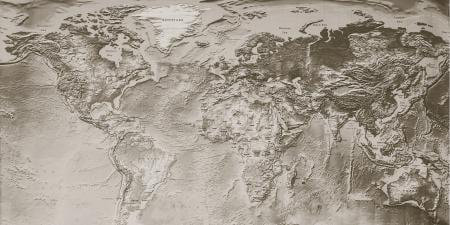Doctor Without Borders or Doctor Without Qualifications? How to Be of Use and Stay Safe on International Student Placements
It is likely that as a medical student you will learn more from an overseas placement in a low-income country than you feel able to offer. Faced with unfamiliar diseases and living in extreme poverty, patients seek medical care much later than you would imagine. Operating with limited resources tests your clinical skills when diagnostic investigations are rationed or unavailable. Immersion in a second language taxes your communication skills and ability to establish rapport. Working in a different culture will indeed foster understanding, tolerance and patience, and you may return with startlingly different ideas about the world and perhaps more questions than answers about what is happening on our planet.
In light of all this, how can medical students try to make their time overseas effective for their hosts and patients? An early venture to Nepal after my second year of medical training made me acutely aware of my limitations in the face of these challenges and inspired me to find out more before returning to international work. I offer some tips here to help you make the most of overseas placements.
Most of those who want to work in low-income countries do so in response to the humanist imperative: to help where there is need. As medics we are equipped with skills to benefit that most precious of possessions, human life. Where health workers are in short supply and the burden of disease weighs heavily, doctors can be of great help. But without careful planning, students may find themselves unsure of their role and uncertain about whether they help or hinder the work of their host organization.
Many students have found themselves out of their depth, asked to perform unfamiliar procedures with less supervision than they would have had at home. You may be, as I was, welcomed as the “overseas doctor” and, by virtue of foreign training, expected to have superior skills. As much as you feel ready to meet these challenges and gain practical experience, you are ethically—and perhaps legally—on shaky ground if you undertake the role of doctor without qualifications. Be aware of your limitations and discuss your level of experience and knowledge with your hosts beforehand. Do your best to familiarize yourself with local conditions, treatments and the social context before you arrive.
Be frank about what you hope to gain and agree to a suitable program or research project of mutual benefit. As students, you have much to offer; it may be that teaching English to health workers and students is the most useful thing you can do. Share expertise with local students and bring teaching aids or textbooks, and you’ll contribute to a long-term investment.
With the question of sustainability in mind, even experienced humanitarian workers return home asking, “Was my work of any use?” The fact that you have come and that you care, through work and through friendships, builds solidarity with overseas colleagues. It is worth thinking about how you can continue the support at home, through hospital or medical school partnerships and professional exchanges.
International rotations, if well-organized, are a valuable learning opportunity and introduction to international health work. Look forward to it and plan it well. There are some ills that medicine cannot cure, but an ability to see the bigger picture, the social, economic and public health issues surrounding each patient, will make you a better doctor…wherever you choose to work.



